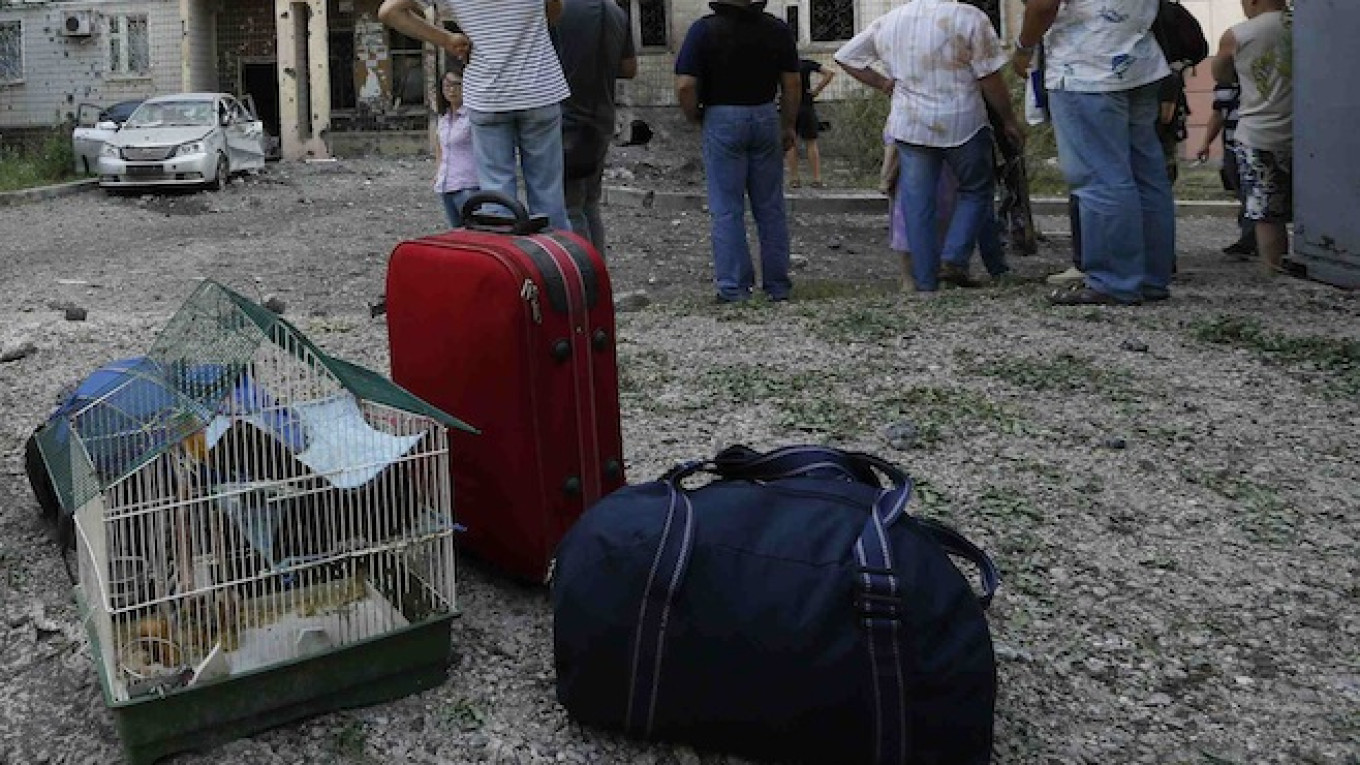Even Russia's Far East has felt the heat of the ongoing Ukraine conflict, with Kamchatka authorities having declared an emergency regime over an anticipated refugee influx.
"By September 1, we will be prepared to accept 160 people, though it will actually be necessary to provide housing for 780 people," Governor Vladimir Ilyukhin said in a statement Thursday.
"The Kamchatka Peninsula is ready to take in all those who have suffered as a result of the military actions [in east Ukraine]," Ilyukhin said, adding, "Right now, no one can say for sure how long these people will be here. We are counting on them arriving, moving in, recovering a bit and then later deciding whether or not to stay. Some will find work, some will move out further in the region to start over there. Some will want to return [to Ukraine], and some will move to other regions in Russia."
The emergency regime will allow the authorities to use the region's reserves to offer material support for those fleeing the violence in eastern Ukraine. It will remain in effect until Ilyushkin decides to call it off.
In addition to preparing housing for refugees, the regional administration has also taken steps to find work for those who wish to stay in the area.
In early August, the United Nations said 730,000 people had fled Ukraine for Russia since the start of the year, while thousands of others had moved further west in Ukraine.
Most of those who left the country were fleeing to escape the relentless combat between pro-Russian separatists and Ukrainian troops in such rebel strongholds as Donetsk and Luhansk in the country's east.
While many of the refugees have settled in areas closer to the Ukraine-Russia border, like Rostov, they have also spread out to other regions, including the Far East and North Caucasus, according to ITAR-Tass.
Russia's Foreign Ministry and Federal Migration Service have referred to the situation as a "humanitarian catastrophe" and warned that the number of displaced persons in the conflict would rise.
See also:
UN Says 730,000 People Have Fled Ukraine for Russia Over Conflict
Contact the author at [email protected]
A Message from The Moscow Times:
Dear readers,
We are facing unprecedented challenges. Russia's Prosecutor General's Office has designated The Moscow Times as an "undesirable" organization, criminalizing our work and putting our staff at risk of prosecution. This follows our earlier unjust labeling as a "foreign agent."
These actions are direct attempts to silence independent journalism in Russia. The authorities claim our work "discredits the decisions of the Russian leadership." We see things differently: we strive to provide accurate, unbiased reporting on Russia.
We, the journalists of The Moscow Times, refuse to be silenced. But to continue our work, we need your help.
Your support, no matter how small, makes a world of difference. If you can, please support us monthly starting from just $2. It's quick to set up, and every contribution makes a significant impact.
By supporting The Moscow Times, you're defending open, independent journalism in the face of repression. Thank you for standing with us.
Remind me later.


